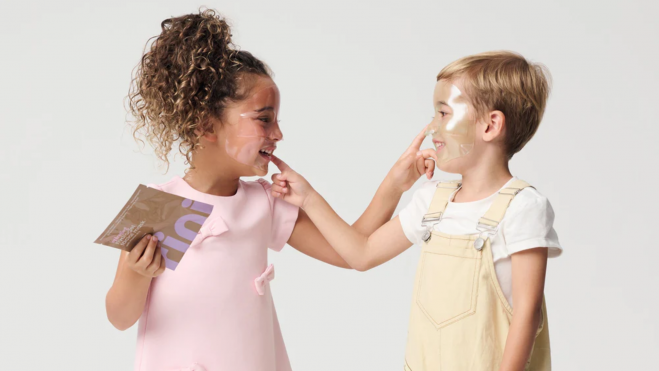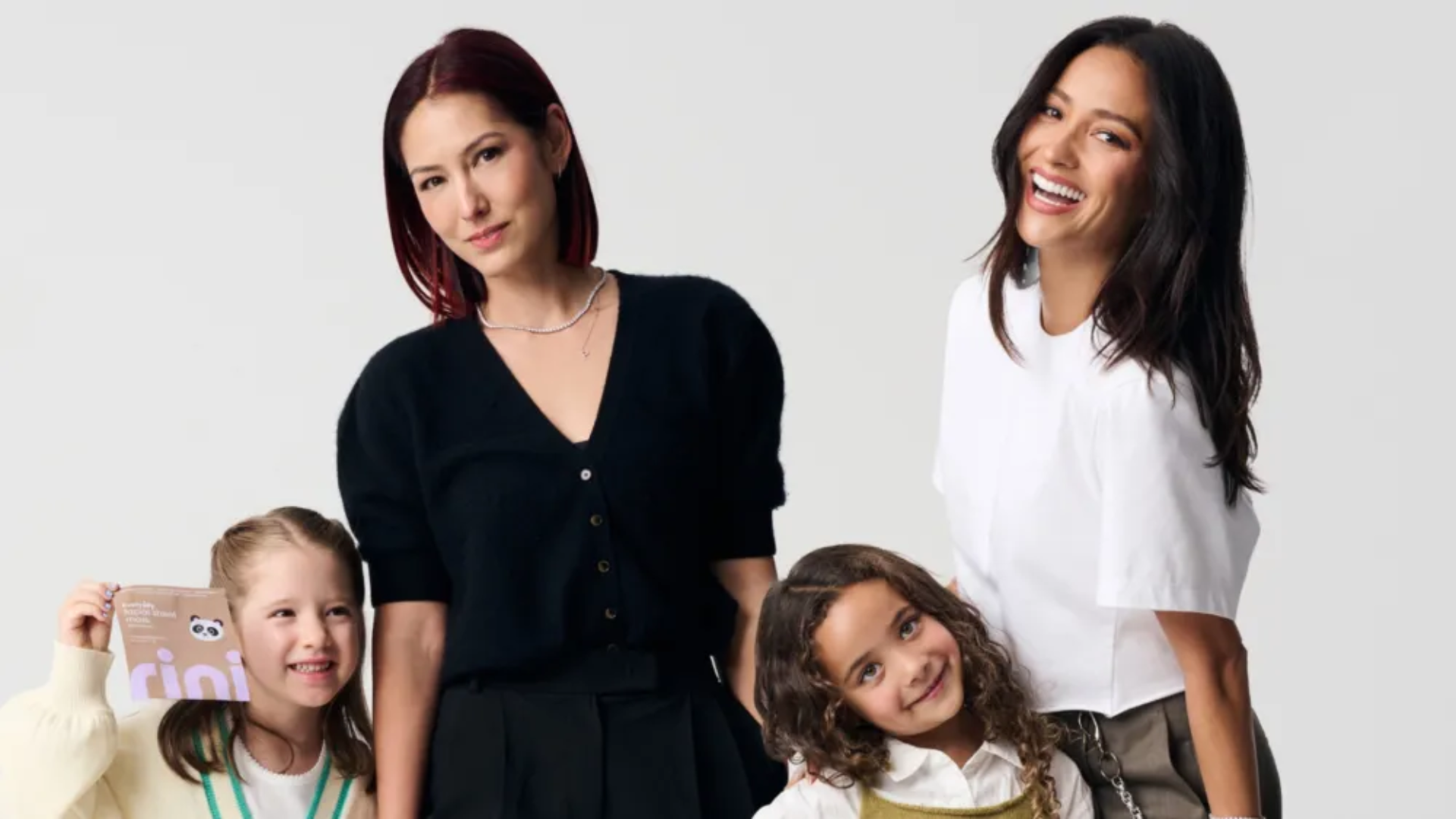A new controversy surrounding children is engulfing the cosmetics sector in the United States. Rini is the cosmetics brand founded by a Hollywood actress, and yes, without any shame, it targets children as its main audience. Despite its introduction stating they are parents concerned about their children's skincare, it seems to be something more vain.
They present themselves as products that feature the latest Korean innovation and a brand that wants to show that skincare is like a game. And therein lies one of the inconsistencies: is skincare a game? Is children's skin a game? Where does aesthetic pressure fit in?
Generation Alpha Falls for the Temptation of Skin Care
This trend only confirms the phenomenon we already knew: Sephora Kids. Universities are already investigating how social media is influencing children and pre-teens and how they are starting to see skincare routines as a way to be popular on social media. TikTok has become the most important platform and the one that has most 'viralized' and at the same time 'trivialized' everything related to skincare. The report confirms that dermatologists are reporting how cosmetics that should not be used by children are causing adverse effects on their skin, in addition to other consequences that influence mental health, such as body dysmorphia or anxiety. And this is partly due to a regulatory loophole that leaves children in a clearly vulnerable situation against these messages and this type of aggressive content.
This type of message, moreover, has a greater impact on the female gender. According to the latest Barometer of Opinion on Children and Adolescents 2023-2024 by Unicef Spain, girls are below boys in some aspects, such as not feeling as well and as fit as boys do. They also register a higher percentage when asked if they have felt sad or lonely.
Another of the problems is that age is beginning to be conceived as an illness and social networks are setting unattainable standards: perfect skin, glass skin... And all of this generates frustration and a rejection of reality, of what one has, of everyday life. In the aforementioned report prepared by the Mapfre Foundation, more than 42.4% of the minors surveyed stated that they receive advertising about food and physical appearance through their mobile device. The main source is YouTube (38.6%), followed by TikTok (33.8%) and Instagram (29.5%). Furthermore, almost half of those surveyed (48.7%) declare that fashion is the sector related to body care, and it is from this sector that they receive the majority of advertising impacts, followed by the cosmetic and beauty industry (33.1%), not to mention the fitness and gym sector. Because of this, self-perception and body perception are affected by the content consumed and, as I said before, the idealization of physiques that are practically unattainable or far from healthy.
Another report prepared by NielsenIQ also focused on the relationship between skincare and how Generation Alpha is entering it. The famous 'Get Ready With Me' videos have become the main drivers of this skincare craze at such an early age. Toners, cleansers, and serums are the preferred products among minors.

Rini starts despite the controversy
The cosmetics brand, despite the negative comments received on social media, presents its brand as something children can play with, offering alternatives that respect the environment and animals. They justify that children imitate what adults do and therefore need an alternative that respects their skin's "needs." The first products they have launched on the market are masks specially designed for children that hydrate their skin.
Both experts and dermatologists are quite critical of these types of actions: "brands sell it as something empowering, but in reality, they are playing with children's vulnerabilities," as they stated to the BBC.
The solution? Everyone seems to know it: tough, demanding regulation that protects children. This is the case of California, which at the beginning of this year, and in response to the increase in so-called 'Sephora Kids', decided to ban anti-aging products for those under 18 years of age. California lawmakers called it ridiculous and paradoxical that children were buying these types of cosmetics.

